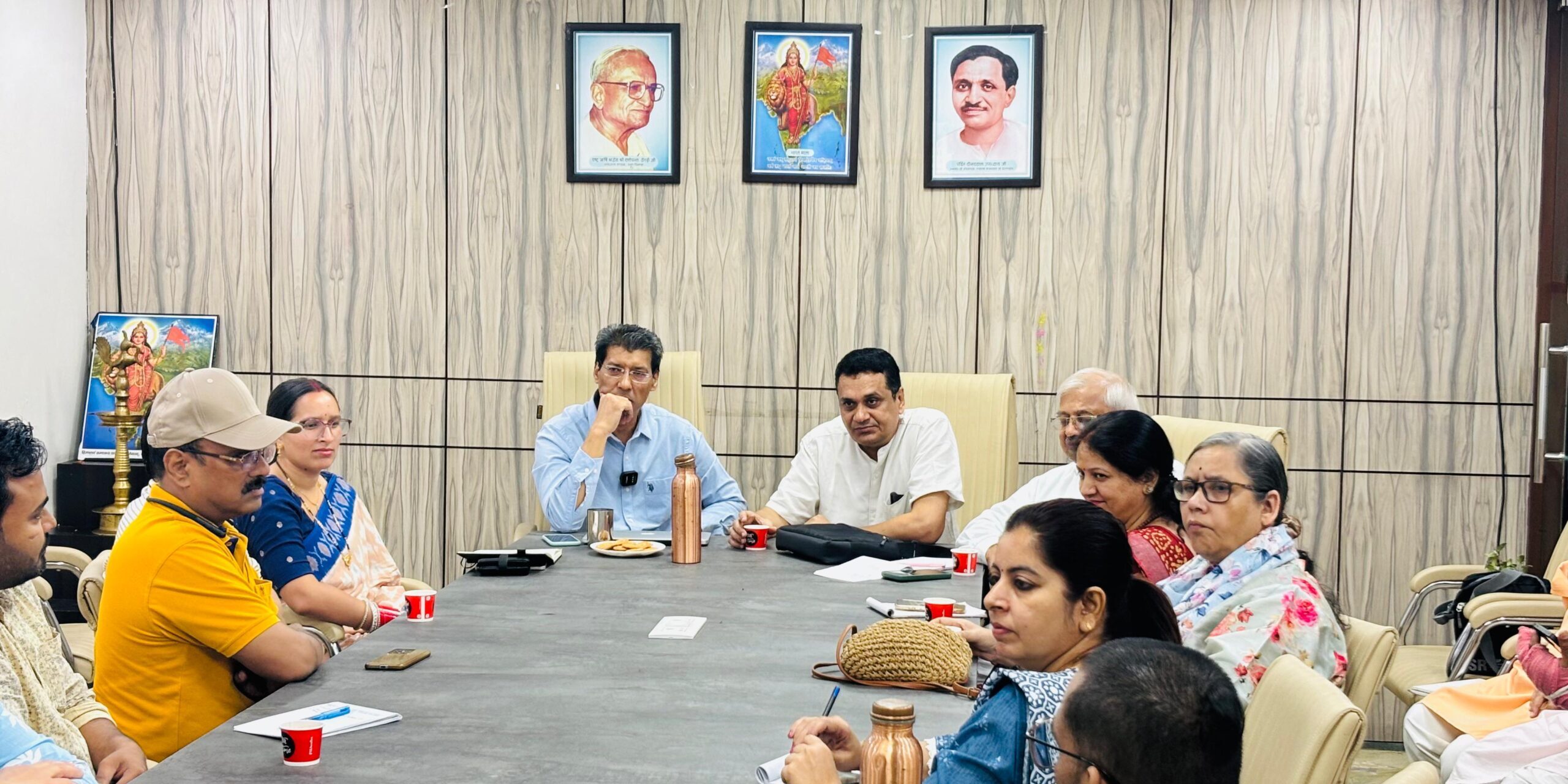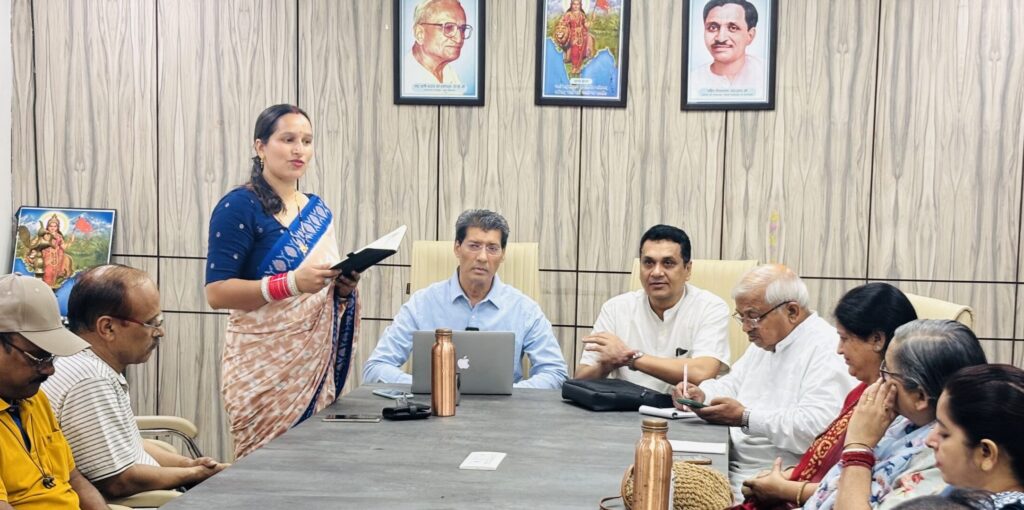The influence of Indian civilization on China: Insights from Prof. B. R. Deepak’s Lecture
On May 20, 2025, the Swadeshi Shodh Sansthan (China Desk) inaugurated its lecture series with a compelling session titled “The Influence of Indian Civilization on China”, delivered by Prof. B. R. Deepak, Professor of China and Chinese Studies at Jawaharlal Nehru University, New Delhi. The event, held at 11:00 AM, was graced by distinguished guests including Shri Satish Kumar Ji (Chief Guest), Shri Kashmiri Lal Ji (Guest of Honor), Prof. Pradeep Chauhan (Chair), and was moderated by Dr. Reeta Kumari.
Prof. Deepak initiated the discussion by proposing three central assumptions: India, as a knowledge production hub, historically attracted global scholars and travelers; India’s cultural exports significantly enriched Chinese civilization; and while the Indo-Chinese civilizational ties were benevolent, certain historical aberrations existed.
He meticulously outlined India’s intellectual legacy through ancient universities such as Takshashila, Nalanda, Odantapura, Vikramashila, and others, where disciplines like medicine, mathematics, politics, fine arts, and astronomy flourished. These centers not only shaped regional scholarship but also facilitated the cross-cultural dissemination of knowledge to China.
Highlighting India’s classical influence on China, Prof. Deepak traced references from Indian epics like the *Mahabharata*, *Ramayana*, and *Puranas* within Chinese texts. Indian treatises such as *Arthashastra*, *Manusmriti*, and *Brihatsamhita* were cited as containing early references to China (e.g., *Chinabhumi*, *Chinapatta*), indicating an awareness and recognition of Chinese lands in ancient Indian thought.
A major part of the lecture was dedicated to the “dissemination of Indian cultural genes” that enriched Chinese language, literature, religion, and technology. Prof. Deepak pointed to the massive translation efforts that gave birth to Chinese Buddhism and introduced diverse Indian philosophical and technological ideas to China. He revealed how over 35,000 Sanskrit terms were integrated into Chinese, enriching its lexicon and even affecting tonal and phonological developments.
Indian storytelling traditions such as the *Jataka Tales* and texts like *Lalitavistara Sutra* influenced Chinese literature across dynasties, visible in genres like *bianwen*, *huanben*, and *Chuanqi*. He drew fascinating literary parallels, such as the 4th-century BC poem “Questions to Heaven” by Qu Yuan, echoing themes found in Indian cosmology.
Further, Prof. Deepak discussed how Indian influence shaped Chinese theatre via Bharata’s *Natyashastra*, with elements found in Tibetan and Chinese drama. Technological transmissions, such as sugar-making techniques, also underscored this bilateral enrichment. He noted archaeological findings of Hindu deities and motifs across China — from Xinjiang’s Lopnor to Dunhuang, Quanzhou, and Dali — bearing testimony to India’s ancient civilizational imprint.
In the concluding part of his lecture, Prof. Deepak emphasized the importance of civilizational dialogue, citing instances of historical solidarity from the Taiping Uprising to India’s support during China’s war of resistance. He stressed the need to rediscover shared cultural roots to foster modern friendship and mutual respect, even as contemporary challenges and asymmetries test the relationship.
The lecture ended with an engaging Q\&A session, where researchers appreciated Prof. Deepak’s clarity, depth, and accessible delivery. It was a rich and thought-provoking session that deepened the understanding of India’s enduring influence on Chinese civilization.








